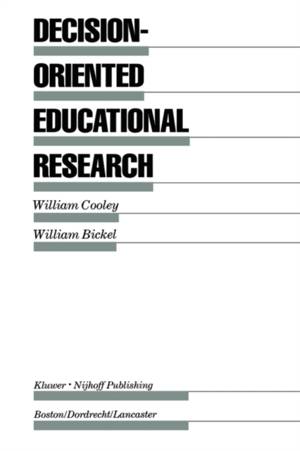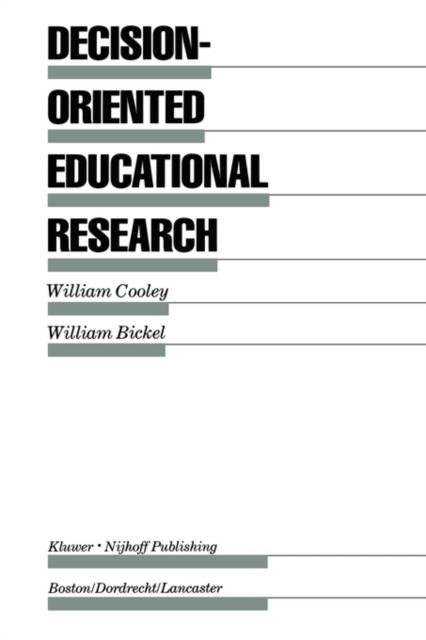
Bedankt voor het vertrouwen het afgelopen jaar! Om jou te bedanken bieden we GRATIS verzending (in België) aan op alles gedurende de hele maand januari.
- Afhalen na 1 uur in een winkel met voorraad
- In januari gratis thuislevering in België
- Ruim aanbod met 7 miljoen producten
Bedankt voor het vertrouwen het afgelopen jaar! Om jou te bedanken bieden we GRATIS verzending (in België) aan op alles gedurende de hele maand januari.
- Afhalen na 1 uur in een winkel met voorraad
- In januari gratis thuislevering in België
- Ruim aanbod met 7 miljoen producten
Zoeken
€ 167,95
+ 335 punten
Uitvoering
Omschrijving
Decision-Oriented Educational Research considers a form of educational research that is designed to be directly relevant to the current information requirements of those who are shaping educational policy or managing edu- cational systems. It was written for those who plan to conduct such research, as well as for policy makers and educational administrators who might have such research conducted for them. The book is divided into three main parts. Part I is background. Chapter 1 describes some of the basic themes that are woven throughout subsequent chapters on decision-oriented research. These themes include the impor- tance of taking a systems view of educational research; of understanding the nature of decision and policy processes and how these influence system re- search; of integrating research activities into the larger system's processes; of the role of management in the research process; of researchers and managers sharing a sense of educational purposes; and of emphasizing system improvement as a basic goal of research process. Chapter 2 is a discussion of the background of the research activities that form the bases of this book. Our collaboration with the Pittsburgh public school system is described, as are the methods and structure we used to build the case histories of our work with the district. Part II, encompassing chapters 3 through 9, addresses basic generaliza- tions about decision-oriented educational research that we have derived from our experiences.
Specificaties
Betrokkenen
- Auteur(s):
- Uitgeverij:
Inhoud
- Aantal bladzijden:
- 298
- Taal:
- Engels
- Reeks:
- Reeksnummer:
- nr. 11
Eigenschappen
- Productcode (EAN):
- 9780898382013
- Verschijningsdatum:
- 31/12/1985
- Uitvoering:
- Hardcover
- Formaat:
- Genaaid
- Afmetingen:
- 152 mm x 229 mm
- Gewicht:
- 644 g

Alleen bij Standaard Boekhandel
+ 335 punten op je klantenkaart van Standaard Boekhandel
Beoordelingen
We publiceren alleen reviews die voldoen aan de voorwaarden voor reviews. Bekijk onze voorwaarden voor reviews.









